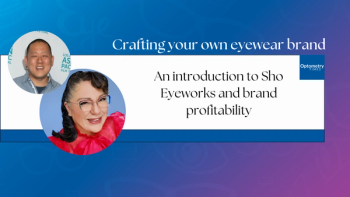
Eyecare industry representatives testify for Senate panel
The Senate Judiciary Committee's nine-member antitrust panel recently met to consider the decisions by Alcon, Bausch + Lomb, and Johnson & Johnson to put in place minimum sale prices for some of their products.
Washington, DC-The Senate Judiciary Committee's nine-member antitrust panel recently met to consider the decisions by Alcon, Bausch + Lomb, and Johnson & Johnson to put in place minimum sale prices for some of their products.
The practice would have been illegal about a decade ago but became legal when the Supreme Court ruled in 2007 that manufacturers can set minimum sale prices in some situations. Lawmakers will seek to determine whether these policies limit competition and lead to higher prices for consumers.
The exploratory hearing focused on claims made by Internet retailers about the impact of the unilateral pricing policies (UPP) adopted by some contact lens manufacturers. Representatives from 1-800 Contacts, Johnson & Johnson Vision Care, the American Optometric Association (AOA), and Consumers Union all served as witnesses.
“We value the relationship we have with eyecare providers and with manufacturers alike…So, the issue here, in our minds, is not eyecare providers. Nor is it simply the manufacturers. It is, in fact, a fundamental flaw in this marketplace,” R. Joe Zeidner, general counsel with 1-800 Contacts,
“It is flawed in a manner which leads to anti-competitive practices which harm our customers-practices like the introduction into this market of Resale Price Maintenance programs which will raise prices and limit options for consumers at a time when Americans are looking for ways to save some money,” he said.
Zeidner also asserted that the
“Johnson & Johnson Vision Care made the decision to implement a UPP after thorough consideration of a number of options and independent of pricing decisions of other contact lens manufacturers,” Millicent Knight, OD, head of professional affairs of J&J Vision Care,
“For example, we could have simply reduced prices to those who sell our products. We determined, however, that in this case, there would be no guarantees that nay discount would be passed on to consumers,” she said.
American Optometric Association President David Cockrell, OD,
“This type of rigid pricing hurts consumers who are looking to get a better deal and it hurts discount retailers who want to give consumers a break. Ultimately, consumers are denied more affordable alternatives and retailers are denied the right to reach cost-conscious consumers with a better deal,”
“While previous laws were passed to remove the chains that once tied eye care services to lens sales, unilateral pricing is beginning to replace those chains with a silken cord that has a similar binding effect,” Slover told the panel.
Newsletter
Want more insights like this? Subscribe to Optometry Times and get clinical pearls and practice tips delivered straight to your inbox.













































